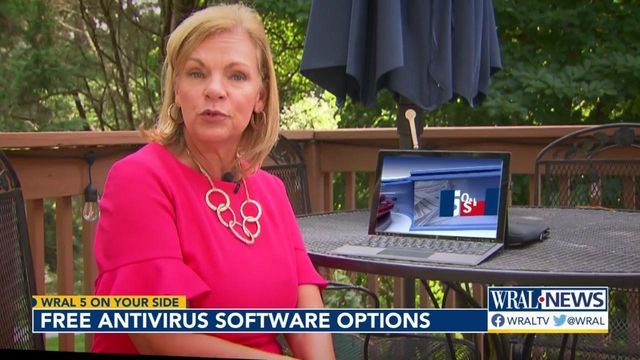What free programs you can use to protect yourself from malware
We all want to protect our property from criminals, which is why we lock our homes and cars. But what about our personal information on our computers?
Posted — UpdatedExperts say antivirus software can help keep your information secure and prevent you from becoming a victim to a ransomware attack. Your computer, your smartphone, router, even TVs are all constant targets of malware.
Malware drains and slows down your computer and also poses a risk to your financial data and security.
Ransomware attacks cost local and state governments more than $18 billion last year, officials said. The average amount people end up paying when their data is compromised is $300,000.
"On average, according to the researchers, ransomware operators demanded an eye-watering $847,344 for each ransomware attack during 2020," experts with TipWire said.
Is my computer compromised?
Most malware will run on your computer without you knowing. But there are a few tell-tale signs that could mean your computer is compromised:
- If your device is slowing down or crashing frequently
- If there are new toolbars, settings or changes in your web browser
If your computer is constantly being interrupted by pop-ups prompting you to install something, your computer could be compromised. Many ads will try and get you to download spyware, that takes over your browser and captures your personal information.
You can and should protect yourself with antivirus software
Experts with Consumer Reports put more than 30 programs through tests, exposing computers running both Windows 10 and macOS to malware, malicious websites, and phishing attempts.
“For the first time we also gave each of the programs a data-privacy score. It’s based on how the company says it collects, shares and uses your data,” according to Bree Fowler, tech editor with Consumer Reports.
The good news, you don’t have to pay to get solid antivirus protection that also protects your personal information.
“They’re both free and they both scored excellent for advertising, which means you won’t be bombarded with ads to upgrade your service," Fowler said.
Types of malware
- A virus attaches itself to files and folders. They have the power to change a computer's security settings and erase files
- Scareware attempts to bait you into clicking on a link or message. It will say that you owe money or that there is embarrassing information about you on the internet.
- Ransomware will notify you through popups and ask for money to solve an issue with your computer.
- Spyware is able to look at what sites you go to and is able to gain access to your passwords.
- Adware is malware that comes from clicking on ads.
- A Trojan program will prompt you to download something that doesn't seem malicious, and is often times shareable.
Experts: some paid programs that are worth the investment
Still, paying a higher price does not mean better protection. Experts also say make sure you download antivirus software from a trusted site instead of clicking on an ad promising free protection.
Related Topics
• Credits
Copyright 2024 by Capitol Broadcasting Company. All rights reserved. This material may not be published, broadcast, rewritten or redistributed.






